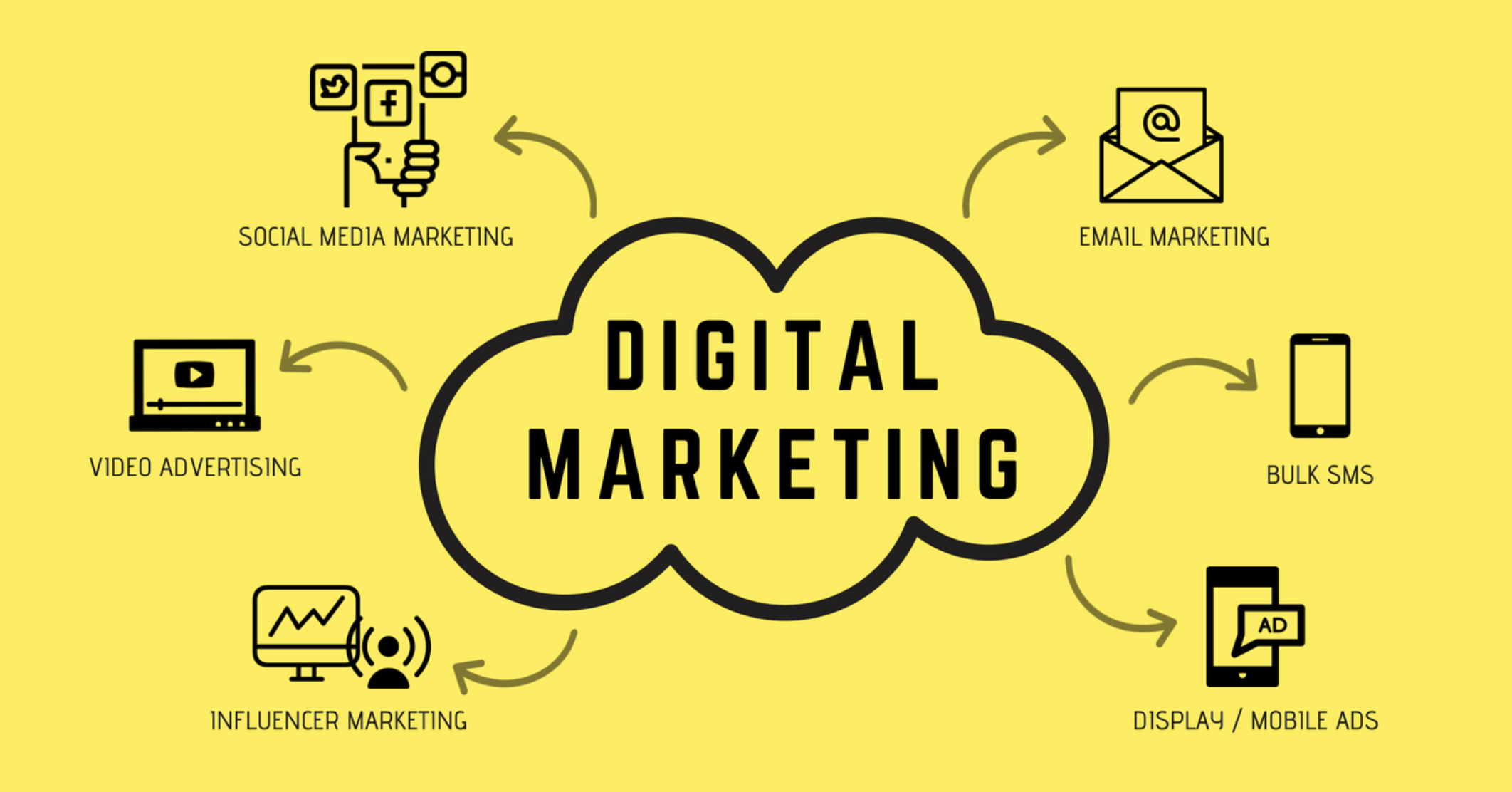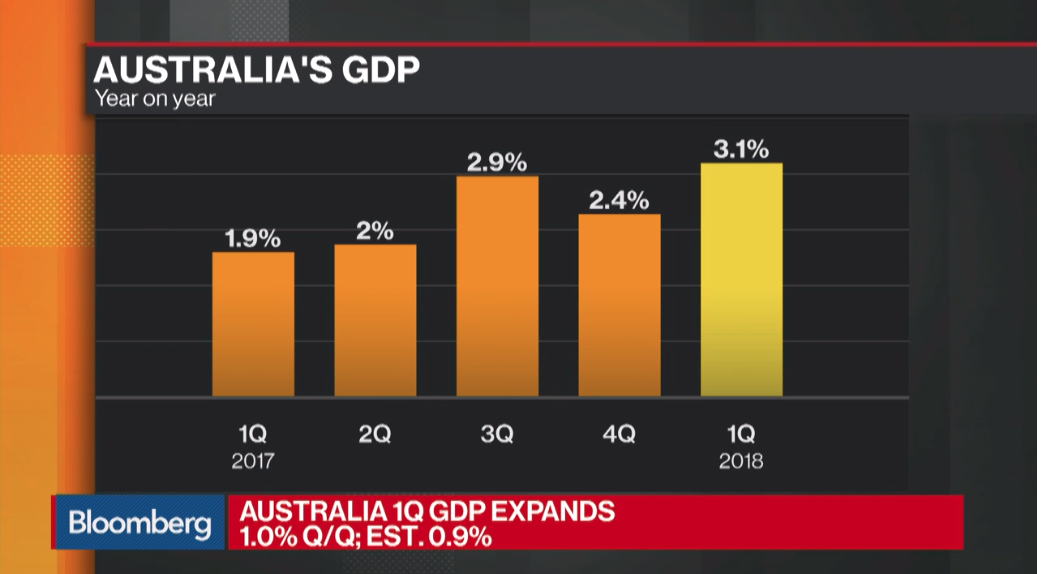Business
5 High-Paying Digital Marketing Jobs You Can Do from Home

In this article, we will explore five high-paying digital marketing jobs that can be done from the comfort of your own home.
These jobs offer lucrative salaries and the flexibility to work remotely.
We will also provide information on free courses and resources to help you excel in these roles.
1 – Copywriting
Copywriting is an essential skill in the field of marketing.
Professionals in this role are responsible for crafting written content that is persuasive, compelling, and drives action.
With top earners in the industry averaging a salary of $130,000, copywriting can be a lucrative career choice.
Copywriters are tasked with creating content for various marketing materials, including advertisements, websites, social media posts, and email campaigns.
The goal is to communicate a brand’s message effectively, engage the target audience, and ultimately drive conversions.
If you’re considering a career in copywriting or want to enhance your existing skills, there are plenty of resources available to help you succeed.
Several free online courses can provide you with the necessary knowledge and techniques to excel in this field.
2 – Search Engine Optimisation (SEO) Manager?
A search engine optimisation (SEO) manager is a professional who specializes in optimizing websites to improve their visibility in search engine results.
In today’s digital age, having a strong online presence is crucial for businesses to attract and retain customers. SEO managers play a vital role in helping businesses achieve higher rankings on search engine result pages (SERPs), ultimately driving more organic traffic to their websites.
Responsibilities of an SEO Manager
As an SEO manager, you will have several key responsibilities.
These may include:
- Conducting keyword research to identify target keywords and search terms that potential customers may use.
- Optimising website content, including headlines, meta tags, and descriptions, to improve search engine rankings.
- Creating and implementing link building strategies to enhance website authority and credibility.
- Analysing website analytics and performance data to identify areas for improvement and make data-driven decisions.
- Staying updated with the latest trends and best practices in SEO to ensure the website remains competitive.
- Collaborating with web developers, copywriters, and marketing teams to implement SEO strategies and achieve the desired results.
The Importance of SEO in Digital Marketing
SEO is an integral part of any digital marketing strategy. By optimising websites for search engines, businesses can improve their chances of being found by potential customers who are actively searching for their products or services.
Here are a few reasons why SEO is essential:
- Increased visibility: By appearing on the first page of search engine results, businesses have a higher chance of being noticed by users.
- Higher website traffic: SEO helps drive organic traffic to websites, which can lead to more conversions and sales.
- Cost-effective marketing: Compared to other forms of digital marketing, such as paid advertising, SEO provides long-term value and a higher return on investment (ROI).
- Builds credibility and trust: Having a strong online presence through SEO boosts the credibility and trustworthiness of a brand.
Enhancing Your Skills as an SEO Manager
Continuous learning and staying updated with the latest SEO trends and techniques is essential for an SEO manager.
One excellent resource to enhance your knowledge in this field is Neil Patel’s free SEO course called SEO Unlocked.
This course is available on Neil Patel’s website, NeilPatel.com/training.
It covers a wide range of topics, including keyword research, on-page optimization, link building, and analytics.
By completing this course, you can gain valuable insights and practical skills that will help you excel in your role as an SEO manager.
Remember, as an SEO manager, your expertise and strategic approach can significantly impact a business’s online visibility and success.
By continuously improving your skills and staying updated with the latest SEO practices, you can stay ahead in this dynamic field.
3 – Data Scientists
Data scientists have become an integral part of today’s business landscape, as companies realize the value of leveraging data to gain valuable insights.
With the ever-increasing amount of data being generated, organisations need professionals who can analyse and interpret complex data sets, helping them make informed decisions and drive business growth.
One of the key reasons why data scientists are in high demand is the potential for significant financial rewards.
According to industry reports, top earners in this field can average a salary of $120,000 to $130,000, making it an attractive career choice for many individuals with a passion for data analysis.
To excel in the role of a data scientist, it is essential to possess a combination of technical and analytical skills.
Proficiency in programming languages such as Python and R, as well as knowledge of statistical modelling and machine learning techniques, are fundamental to this discipline.
Additionally, data scientists must have the ability to communicate their findings effectively to stakeholders, including non-technical members of the organization.
While a traditional academic background in mathematics, statistics, or computer science can provide a strong foundation, there are various courses and programs available that can help individuals acquire the necessary skills and knowledge to become successful data scientists.
One such course is “Introduction to Data Science” offered by Metis.
This comprehensive program covers essential topics such as data visualisation, predictive modelling, and data wrangling, equipping learners with the necessary tools to extract insights from complex data sets.
Another notable course is the “Data Science MicroMasters” program offered by UC San Diego at EDX. This program provides learners with an in-depth understanding of key data science concepts and techniques, including data analysis, machine learning, and data-driven decision making. By completing this program, individuals can gain a valuable credential that demonstrates their proficiency in the field.
Data science is a rapidly evolving field, with new technologies and techniques emerging regularly. Professionals in this role must stay up to date with the latest advancements and tools. This can be achieved through continuous learning and participation in industry conferences and events.
4 – Email Marketing Manager
Email marketing has become an indispensable tool for businesses looking to reach their target audience effectively.
As technology continues to advance, companies are constantly seeking skilled professionals who can develop and implement successful email marketing campaigns. One such career option that has gained immense popularity is that of an Email Marketing Manager.
Average Salary: As an email marketing manager, you have the potential to earn a handsome salary. In fact, top earners in this field average around $110,000 per year. This makes it an attractive career option for individuals who are passionate about digital marketing and want to earn a lucrative income.
Responsibilities of an Email Marketing Manager:
As an email marketing manager, you will have a range of responsibilities that contribute to the success of the company’s email marketing campaigns.
Some of the key responsibilities include:
- Developing Strategies: You will be responsible for creating effective email marketing strategies that align with the company’s overall marketing goals.
- This involves understanding the target audience, analysing data, and identifying opportunities for campaign optimisation.
- Creating Engaging Content: Crafting compelling and engaging content that resonates with the subscribers is crucial in email marketing.
- As a manager, you will be tasked with creating attention-grabbing subject lines, well-written body copy, and persuasive calls-to-action.
- Segmenting and Targeting: Email segmentation plays a pivotal role in achieving higher open rates and click-through rates.
- You will be responsible for segmenting the email list based on various criteria, such as demographics, purchase behaviour, and engagement level, and tailoring the content to suit each segment.
- Analysing and Optimising: Continuous monitoring and analysis of email campaign metrics is essential.
- You will be required to analyse key performance indicators (KPIs) such as open rates, click-through rates, and conversion rates. Based on these insights, you will optimize campaigns to drive better results.
Email Marketing Training with Neil Patel:
To excel in the field of email marketing, it is essential to continuously enhance your knowledge and skills.
Renowned digital marketer Neil Patel offers a comprehensive and free email marketing course called “Email Marketing Unlocked.”
This course provides valuable insights into the strategies and tactics necessary to succeed as an email marketing manager.
If you want to take your email marketing career to new heights, Neil Patel’s course is a valuable resource. You can access the course on his website, NeilPatel.com/training, and learn from one of the industry’s leading experts.
By enrolling in Neil Patel’s course, you will gain expertise in:
- The fundamentals of email marketing.
- Building an effective email list.
- Creating engaging email campaigns.
- Segmentation and personalization strategies.
- Automating email workflows.
- Analysing campaign performance.
Neil Patel’s Email Marketing Unlocked course provides you with the necessary tools and insights to excel in the field of email marketing.
The role of an email marketing manager is crucial in leveraging the power of emails to drive business growth.
With a lucrative salary and ample opportunities for career advancement, this profession is worth considering for aspiring digital marketers.
Explore Neil Patel’s course and equip yourself with the skills needed to succeed in this dynamic field.
5 – Content Marketing Manager
A content marketing manager is a professional who is responsible for creating and managing content strategies to attract and engage target audiences.
This role has gained significant importance in recent years as businesses recognise the value of content in their marketing efforts.
Moreover, it offers an attractive average salary of $115,000 per year, making it a lucrative career path for aspiring professionals.
The Role of a Content Marketing Manager
As a content marketing manager, your primary task is to develop comprehensive content strategies that align with the company’s overall marketing goals.
This involves identifying target audiences, understanding their needs and preferences, and creating valuable and engaging content that resonates with them.
Furthermore, content marketing managers collaborate with various teams within the organization, including marketing, sales, and design, to ensure consistency and effectiveness in content creation and distribution.
They are also responsible for managing and updating existing content, monitoring its performance, and making adjustments based on data-driven insights.
Skills and Qualifications
To excel as a content marketing manager, certain skills and qualifications are crucial:
- Strong Communication Skills: Content marketing managers must have excellent written and verbal communication skills to effectively convey messages to the target audience.
- Strategic Thinking: They need to have a strategic mindset and be able to analyse data and market trends to develop effective content strategies.
- Creative and Analytical Abilities: It is essential to balance creativity with analytical skills to create engaging content that also meets business objectives.
- Understanding of SEO: Knowledge of search engine optimization (SEO) techniques is necessary to ensure content ranks well in search engine results and attracts organic traffic.
- Project Management: Content marketing managers must possess strong project management skills to handle multiple content initiatives simultaneously and meet deadlines.
Content Marketing Unlocked: A Valuable Resource
If you aspire to become a content marketing manager or enhance your existing skills, Neil Patel offers a course called Content Marketing Unlocked.
This course, available on his website, NeilPatel.com/training, provides valuable insights and resources to help you succeed in this field.
The Content Marketing Unlocked course covers various topics, including:
- The fundamentals of content marketing.
- Developing content strategies.
- Creating and optimising content for different channels.
- Using data and analytics to measure content effectiveness.
- Building and managing a content team.
By enrolling in Content Marketing Unlocked, you gain access to Neil Patel’s expertise and proven strategies that can accelerate your career as a content marketing manager. It is a valuable resource for individuals looking to excel in the field of content marketing.
Conclusion
If you’re interested in remote digital marketing jobs, here are a few key points to consider:
Flexibility and Work-Life Balance: Remote digital marketing jobs provide the flexibility to work from anywhere, allowing professionals to find a better work-life balance.
This means you can create your own work schedule and avoid the daily commute, giving you more time for personal activities.
Lucrative Salary: Remote digital marketing jobs often offer competitive salaries, sometimes even higher than traditional office-based roles.
This is because companies value the specialized skills and expertise required for successful digital marketing campaigns.
Access to Free Courses and Resources: With the growing demand for digital marketing skills, many online platforms offer free courses and resources to help individuals acquire the knowledge needed to excel in this field.
These resources include webinars, tutorials, e-books, and more.
Remote Collaboration Tools: Thanks to advanced technology, remote digital marketing teams can easily collaborate and communicate effectively.
Tools like project management software, video conferencing, and messaging apps make it seamless to work together as a team, no matter the distance.
Career Growth: The digital marketing industry is constantly evolving, creating ample opportunities for career advancement.
By staying updated with the latest trends and acquiring new skills, you can enhance your expertise and progress in your remote digital marketing career.
Whether you’re just starting or looking to transition into a remote digital marketing career, the availability of remote job opportunities, coupled with free courses and resources, makes it an ideal time to embark on this journey. With determination and dedication, you can build a successful and rewarding remote digital marketing career.
So why wait?
Start your journey towards a remote digital marketing career today and enjoy the benefits of working from home, earning a lucrative salary, and being part of a fast-paced and thriving industry!
Business
Uber Settles Taxi Court Battle for $272 Million

Uber has agreed to pay a whopping $272 million to resolve a protracted legal dispute with taxi drivers and their associations, marking a significant milestone in the ride-sharing and transportation industries. This large payment is a turning point for the ride-sharing sector as a whole, not just for Uber. This article explores the complexities of the lawsuit, the settlement’s effects, and the settlement’s wider implications for the provision of transportation services in the future.
The Origins of the Legal Battle:
The legal battle between Uber and the taxi industry has its origins in the early stages of the ride-sharing movement. Traditional cab operators and drivers expressed concerns about unfair competition and regulatory compliance as Uber and similar services gained traction. Legal challenges against Uber were brought by taxi associations all across the world. They claimed that Uber had violated transportation legislation, engaged in unfair business practices, and had lost revenue as a result of the growth of ride-sharing services.
The Legal Landscape:
Uber and the taxi industry were embroiled in a multi-front legal struggle that was being waged in different jurisdictions worldwide. The classification of Uber drivers, governmental monitoring of ride-sharing platforms, and the effect of technological innovation on established taxi services were at the center of these legal issues. The lengthy duration of the
Uber’s Response:
Uber remained true to its position as a tech platform that links drivers and passengers rather than a transportation provider governed by the same laws as conventional taxi services throughout the court dispute. Uber maintained that its cutting-edge business strategy, which offers more efficiency, affordability, and convenience than conventional taxis, signifies a paradigm shift in the way customers access transportation services.
Uber persisted in growing its global presence in spite of legal issues and regulatory scrutiny, revolutionizing urban mobility and changing the transportation industry. The business’s capacity to bounce back from setbacks and adjust showed how disruptive technology-driven innovation can be in established sectors.
The Settlement:
Uber and taxi drivers and their groups have achieved a historic settlement, with Uber agreeing to pay $272 million to end the case, following years of legal wrangling and courtroom fights. Even while the compensation is large financially, it also serves as a metaphor for Uber and the taxi industry’s reconciliation and compromise.
Key Terms of the Settlement:
The $272 million settlement contains provisions for regulatory compliance and collaboration between Uber and the taxi sector, as well as compensation for associations and taxi drivers impacted by the growth of ride-sharing services. The settlement also creates a framework for continued discussion and cooperation to address common issues and opportunities in the quickly changing transportation sector.
Implications and Future Outlook:
The future of ride-sharing and transportation services is significantly affected by the settlement reached between Uber and the taxi industry. It foreshadows a change towards increased collaboration and integration between conventional cab companies and online platforms, opening the door to a more peaceful and long-lasting ecology.
Furthermore, the settlement underlines how increasingly people are realizing how important it is to have fair and transparent regulations in the ever-changing transportation sector. It is becoming more and more difficult for regulators and policymakers to strike a balance between promoting innovation and defending the interests of all stakeholders as ride-sharing continues to transform cities and consumer behavior.
Finding a middle ground between protecting the interests of all parties involved and encouraging innovation.
To sum up, the $272 million settlement that Uber reached with the taxi industry is a critical turning point in the development of ride-sharing and transportation services. The end of this protracted legal dispute is indicative of a rising understanding that, in the face of technological upheaval, cooperation and compromise are essential. Urban mobility promises to be both inclusive and revolutionary in the future as Uber and other ride-sharing platforms develop alliances with conventional stakeholders and manage the regulatory landscape.
Business
Australia’s GDP Outlook Brightens with Better-Than-Expected Exports

Fears of an economic contraction have been dulled with the latest net export result exceeding expectations.
Ahead of December quarter national accounts on Wednesday, some economists were warning GDP may have gone backwards for the last three months of 2023.
Data released on Monday showed firms running down their inventories over the quarter in a result that was weaker than expected and anticipated to wipe one percentage point off the December GDP.
But Tuesday’s stronger-than-expected net exports outcome should add 0.6 percentage points to growth over the quarter and counter some of the drag from private inventories.
Government spending data, also released on Tuesday, tracked broadly in line with expectations, with public sector inventories to contribute 0.4 percentage points to growth according the ABS.
ANZ senior economist Blair Chapman said the larger-than-expected net exports addition and an increase in public sector inventories would offset weak private inventories.
The bank is expecting a weak 0.3 per cent increase over the quarter, a little higher than the 0.2 per cent market forecast.
Annually, it anticipates a 1.5 per cent lift.
Mr Chapman said such a result would line up with the Reserve Bank’s expectations of where growth should be tracking.
“But, while GDP may come in roughly around the RBA’s expectations, recent monthly consumer price index and labour market data have increased the risk that the RBA could ease sooner than our November expectation,” he said.
Treasurer Jim Chalmers was out warning of a weak growth report on Tuesday, though his remarks came before the final data releases that slot into GDP.
“There is enough around to trouble us about how the economy finished 2023,” he told ABC TV.
Despite the forecasts for the quarter, Dr Chalmers said Australia was in a better position than similar economies, which had gone into recession during the same time period.
“The December quarter in the Australian economy and indeed the global economy was quite weak,” he said.
“Remember, that was the quarter where we saw Japan and the UK both go into recession.
“We had an interest rate hike right in the middle of that December quarter, we had those persistent cost of living pressures that people are confronting in our communities and around our country.”
Business
Importance of Influencer Marketing for Leads

Utilizing influential individuals in the digital world to drive lead generation is a powerful marketing strategy that can yield significant results for businesses. In today’s crowded online marketplace, it’s essential for brands to understand the impact of influencer marketing and how to effectively leverage it to reach their target audience. Whether you’re a small startup or an established corporation, tapping into the power of influential individuals can skyrocket your lead generation efforts and boost brand awareness. In this blog post, we’ll delve into the secrets of influencer marketing and provide actionable insights on how to harness the influence of key individuals to drive leads and grow your business.
Key Takeaways:
- Identify the right influencers: It is crucial to research and identify influencers who align with your brand and have an engaged audience relevant to your target market.
- Build authentic relationships: Developing genuine connections with influencers is key to establishing trust and ensuring the success of influencer marketing campaigns.
- Provide value to the influencer: Offering value, whether it be through monetary compensation, exposure, or exclusive opportunities, is essential in building a mutually beneficial relationship with influencers.
- Create compelling content: Collaborating with influencers to create high-quality and engaging content that resonates with their audience is crucial for successful lead generation.
- Track and measure results: Utilizing analytics and performance metrics to track the success of influencer marketing campaigns is important in refining strategies and maximizing lead generation efforts.
Identifying the Right Influencers
Now that we understand the importance of influencer marketing, it’s crucial to identify the right influencers who can effectively help in lead generation. Identifying the right influencers is a meticulous process that involves understanding their influence, relevance, and various criteria for selection.
Understanding Influence and Relevance
On the quest to identify the right influencers, it’s essential to understand the concepts of influence and relevance. Influence refers to an individual’s ability to affect the opinions, attitudes, and behaviors of others. When it comes to influencer marketing, it’s important to identify individuals who have a strong influence in your target market. Relevance, on the other hand, refers to the alignment between the influencer’s content and your brand or product. The more relevant the influencer’s content is to your target audience, the more effective their influence will be in generating leads.
Criteria for Selecting Influencers
Criteria for selecting influencers include factors such as the size and engagement of their audience, the authenticity and credibility of their content, their alignment with your brand values, and their past collaborations with other brands. The size and engagement of an influencer’s audience are crucial as it determines the reach and impact of their influence. Authenticity and credibility play a significant role in gaining the trust of their followers, essential for lead generation efforts. It is also important to ensure that the influencer’s values align with your brand to maintain brand authenticity.
This careful consideration of the criteria for selecting influencers will ensure that you partner with individuals who can effectively drive lead generation through their influence and relevance. With the right influencers on board, your influencer marketing strategy will have the potential to reach a wider audience, build trust, and generate high-quality leads for your business. This process demands attention to detail and a thorough understanding of your target audience and brand values.
Crafting the Perfect Collaboration
Clearly, one of the most important aspects of influencer marketing is the collaboration between the brand and the influencer. Crafting the perfect collaboration is crucial for a successful influencer marketing campaign. It requires the brand and the influencer to work together seamlessly, aligning their objectives and ensuring that the partnership benefits both parties.
Establishing Clear Campaign Goals
For a successful influencer marketing collaboration, it is essential to establish clear campaign goals from the outset. Whether the goal is to increase brand awareness, drive website traffic, or generate leads, both the brand and the influencer need to be on the same page. Setting clear and measurable objectives will guide the collaboration and ensure that the campaign delivers the desired results. It is important to communicate these goals effectively and create a plan that aligns with the brand’s overall marketing strategy.
Creating Authentic and Engaging Content
With the rise of ad blockers and the decline of traditional advertising effectiveness, creating authentic and engaging content has become the key to capturing the attention of the audience. Influencer marketing offers brands the opportunity to connect with their target audience in a more authentic way. By collaborating with influencers who have a genuine connection with their followers, brands can create content that resonates and drives engagement.
Engaging content that feels natural and fits seamlessly into the influencer’s feed or platform will enhance the brand’s message and increase the likelihood of generating leads. It is essential to focus on storytelling and creating content that adds value to the influencer’s audience while also promoting the brand in a subtle and authentic manner. This approach will result in higher engagement and a more positive reception from the audience.
Optimizing and Scaling Your Influencer Campaigns
Your influencer marketing campaigns have successfully generated leads and increased brand awareness. Now it’s time to optimize and scale your efforts to reach even greater heights of success. Here’s how you can take your influencer campaigns to the next level.
Measuring Campaign Success
Your first step in optimizing and scaling your influencer campaigns is to measure their success. Use tools and analytics to track metrics such as engagement, click-through rates, and conversion rates. This data will help you understand which campaigns are most effective and which influencers are driving the best results for your brand. With this information, you can make informed decisions about where to allocate more resources and which influencers to continue working with.
Strategies for Scaling Up
Scaling up your influencer campaigns involves expanding your reach and impact. This can be achieved through collaborating with a wider network of influencers, investing in sponsored content, and increasing your budget for influencer partnerships. As your campaigns grow, it’s important to maintain the authenticity and credibility of your brand by selecting influencers who align with your values and resonate with your target audience.
Campaigns that successfully scale up will have a broader reach and generate even more leads and conversions for your business. However, it’s essential to carefully manage and monitor the increased activity to ensure that your brand’s image remains consistent and compelling.
Navigating Challenges in Influencer Marketing
Keep, influencer marketing is not without its challenges. As with any marketing strategy, there are hurdles that must be navigated in order to achieve success. Some of the most common challenges in influencer marketing include handling negative feedback and reputation management, legal considerations and compliance, and navigating the ever-changing landscape of social media platforms.
Handling Negative Feedback and Reputation Management
An influencer marketing campaign, no matter how carefully planned, can sometimes attract negative feedback. It’s important for brands to have a plan in place for handling criticism and negative feedback in a way that preserves their reputation and maintains the trust of their audience. Addressing negative comments or reviews in a timely and respectful manner can go a long way in mitigating any potential damage to a brand’s reputation. It’s also important for brands to work closely with influencers to ensure that any negative feedback is addressed appropriately and in a way that aligns with the brand’s values and messaging.
Legal Considerations and Compliance
For influencer marketing campaigns, there are legal considerations and compliance that must be carefully managed. From disclosing sponsored content to adhering to data privacy laws, brands must ensure that their influencer marketing efforts are in line with legal requirements. Failure to do so can result in legal trouble and damage to a brand’s reputation. It’s imperative for brands to work with legal professionals who are well-versed in influencer marketing and can provide guidance on compliance with relevant laws and regulations.
A comprehensive understanding of the legal landscape surrounding influencer marketing is crucial for brands looking to leverage influencer partnerships for lead generation. Ensuring compliance with data privacy laws, FTC guidelines, and other legal considerations is essential for building trust with consumers and safeguarding a brand’s reputation. Working with legal experts in the field of influencer marketing can provide brands with the necessary guidance and support to navigate these complex legal issues successfully.
The Power of Influencer Marketing for Lead Generation
The use of influential individuals in marketing campaigns can be an incredibly effective strategy for generating leads. By leveraging the existing authority and trust of these influencers, businesses can reach a wider audience and drive more conversions. In this digital age, where social media influencers hold significant sway over consumer behavior, incorporating influencer marketing into lead generation efforts is essential for staying competitive in the market. The most successful influencer marketing campaigns involve a careful selection of the right influencers, aligning their values with those of the brand, and creating authentic and engaging content that resonates with their followers. By following these influencer marketing secrets, businesses can maximize their lead generation efforts and achieve greater success in their marketing strategies.
FAQ
Q: What is influencer marketing and how does it work?
A: Influencer marketing is a strategy that involves leveraging influential individuals, or “influencers,” to promote a brand’s products or services to their audience. This is typically done through social media platforms, and influencers are chosen based on their following and relevance to the brand’s target audience. By partnering with influencers, brands can tap into their existing following and credibility to reach potential customers in a more authentic and effective way.
Q: How can influencer marketing help with lead generation?
A: Influencer marketing can help with lead generation by increasing brand visibility among a larger and more targeted audience. When influencers promote a brand’s products or services, their followers are more likely to trust and engage with the brand, leading to an increase in leads and potential customers. Additionally, influencers can create content that showcases the brand and its offerings, which can further drive lead generation through their authentic endorsement and recommendations.
Q: What are some key strategies for successful influencer marketing?
A: Key strategies for successful influencer marketing include identifying the right influencers for your brand, creating authentic and engaging partnerships, and measuring the success of your campaigns. It’s important to align with influencers whose values and audience align with your brand’s target audience. Additionally, creating a clear partnership that highlights the authenticity of the collaboration is essential, as well as measuring the performance of campaigns to optimize future influencer marketing efforts.
Q: How can a brand identify the right influencers for their influencer marketing campaigns?
A: Brands can identify the right influencers for their campaigns by considering factors such as the influencer’s relevance to their industry, the demographics and engagement of their followers, and the influencer’s past brand partnerships. It’s important to collaborate with influencers who resonate with your brand’s values and audience, and who have a genuine connection with their followers.
Q: What are the potential benefits of leveraging influential individuals for lead generation?
A: The potential benefits of leveraging influential individuals for lead generation include increased brand awareness, higher engagement and credibility, access to a larger audience, and the potential for long-term brand loyalty. Influencers can help brands reach new prospective customers and retain existing ones through their authentic and influential endorsements and content creation.
Q: What are some common pitfalls to avoid in influencer marketing for lead generation?
A: Common pitfalls to avoid in influencer marketing for lead generation include partnering with influencers who do not align with your brand, failing to establish clear campaign goals and expectations, and not measuring the success and ROI of influencer campaigns. It is crucial to conduct thorough research and due diligence before collaborating with influencers to ensure that their following and engagement are genuine and relevant to your brand.
Q: How can a brand measure the success of their influencer marketing campaigns for lead generation?
A: Brands can measure the success of their influencer marketing campaigns for lead generation by tracking key metrics such as reach, engagement, lead conversions, and overall ROI. Using tools and analytics provided by social media platforms, as well as implementing unique tracking links and codes, can help brands gain insight into the performance and effectiveness of their influencer marketing efforts.
-
Business2 years ago
How to Earn Money Writing Blog Posts in 2023: A Comprehensive Guide
-
Games2 years ago
How does Dead Space Remake enhance the Horror Classic of 2008
-
Video2 years ago
Everything you need to know about Starfield
-
Health2 years ago
How is Yoga and Pilates Bridging the Gap Between your Mind and Body
-
Health2 years ago
Migraine medications significantly improve the quality of life
-
World2 years ago
Swiss Pharma Powerhouse Acino Expands into Latin America with M8 Pharmaceuticals Acquisition
-
Self Improvement2 years ago
Enhancing Relationships and Emotional Intelligence Through Mindfulness Meditation
-
Business2 years ago
How to Use LinkedIn to Build Your Professional Brand
























